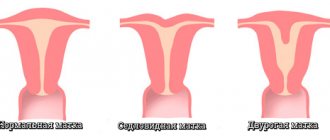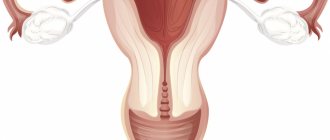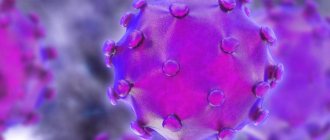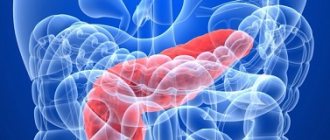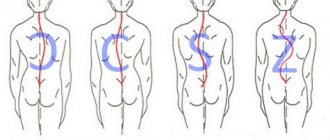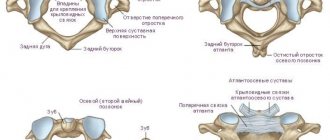According to statistics from various authors, the incidence of the disease varies within very wide limits - from 3 to 70%. This variability is due to the lack of uniform pathomorphological criteria for diagnosis and significant differences in the material sent for research. Women of reproductive age are most often affected - this category accounts for about 97% of all patients.
The disease is always a consequence of acute inflammation, which is not completely cured. The result of this is prolonged chronic endometritis.
.
The main threat posed by a chronic inflammatory process is infertility , so the problem is not only medical, but also social in nature. In addition to problems with conception, the pathology sharply reduces the likelihood of successful in vitro fertilization and provokes various complications during pregnancy, including premature birth.
Classification
Endometritis is classified according to stages:
- acute - occurs with severe general (intoxication) and local symptoms;
- subacute - occurs in the absence of treatment of endometritis in the acute phase against the background of weakened immune defense;
- chronic - characterized by an unexpressed clinical picture, involvement of the basal (deep) uterine layer, proliferation of the mucosa, disruption of its structure. Most often, it is chronic endometritis that leads to a woman’s infertility and miscarriage. Depending on changes in the endometrium, this stage can be hypertrophic (excessive growth of the membrane), atrophic (underdevelopment and insufficiency of glandular cells, proliferation of connective tissue). And cystic - the formation of intraendometrioid cysts.
Among patients experiencing problems with natural conception, from 12 to 68% suffer from chronic endometritis. Among women with unsuccessful attempts to use assisted reproductive technologies, the disease occurs in approximately 60%. 70% of patients with recurrent miscarriage have a diagnosis of chronic endometritis.
Popular questions
How to treat endometritis, what drugs are good for treatment?
Endometritis is inflammation of the lining of the uterus. The cause is an infectious agent that causes tissue damage and the development of inflammatory changes. Depending on the infection, a combination of antibacterial, antiviral, and antifungal drugs is selected. If the disease lasts for a long time, enzymatic, anti-inflammatory, immunomodulatory agents, and vitamin therapy are additionally prescribed. You need to conduct further examination and identify the infectious factor. Next, the attending physician will select a combination of drugs that will relieve inflammation.
Tell me, I have chronic endometritis, cervicitis, periodically before men. cycle and after there is burning and itching, and also after sexual intercourse, is this remedy (gynocomfort) suitable for me? According to my diagnosis, the doctor advises me to put on a hormonal ring (Novaring) for the treatment of endometritis. I have been taking thyroid hormone for a year (Euthyrox). I noticed that during this year the itching began. Could this somehow affect problems with the genital area?
Hello! Pathology of the thyroid gland does not lead to itching in the genital tract. The cause is inflammation or atrophic phenomena. First of all, it is necessary to establish the infectious factor that led to the chronic disease and carry out adequate therapy. The use of a combined contraceptive is possible only after anti-inflammatory treatment. At this stage, as part of complex therapy, it is possible to use Ginocomfort gel with tea tree oil, which will accelerate the therapeutic effect and restore the balance of lactoflora in the genital tract.
Hello! I am 40 years old, I have endometriosis and small uterine fibroids. On the doctor's advice, I drink Janine. I always start packing on Thursday. This month, at the end of the first week, I thought that I had missed taking a pill, I had to take 2 at once. And today, while planning a vacation, I was horrified to discover that I had not missed a pill, but had started the pack incorrectly - from Wednesday. Those. Now I will be missing 1 tablet in the blister! Please tell me what to do!
Hello! In your case, you can take the missing tablet from a new blister without interrupting the course, or drink the next pack without a seven-day break, that is, 42 days, and only after that take a break. The content of components in each tablet is the same.
Hello, I was in the hospital with inflammation and an endometrioid cyst and received antibiotics, IVs and injections, I was also prescribed furatsilin baths, but when I started receiving them I developed a burning sensation in the vagina, especially when urinating, what should I do now?
Hello!
This may be an allergic reaction to furatsilin. I recommend using Ginocomfort gel with mallow extract. This remedy has an anti-inflammatory, moisturizing effect on the mucous membranes of the genital tract, which will eliminate the burning sensation. The gel is used in 1 dose for 7-10 days. For an accurate diagnosis, contact a specialist
Causes of chronic endometritis of the uterus
The main causes of chronic endometritis are pathogenic and opportunistic bacteria. In most cases, they enter the uterine cavity in an ascending way - from the vagina.
Factors that contribute to infection of the uterine mucosa include:
- childbirth;
- surgical interventions (caesarean section and others);
- abortion (especially criminal abortion);
- period;
- intimacy during menstruation;
- any diagnostic and therapeutic procedures in the uterine cavity;
- the presence of an infectious process in the body;
- immunodeficiency states.
As a rule, when exposed to unfavorable factors, an acute pathological process develops in the inner lining of the uterus. The disease is characterized by a fairly typical clinical picture and does not present any particular difficulties in terms of diagnosis and treatment, but in some cases the process enters the chronic phase. A certain role here is played by secondary causes of chronic endometritis, or factors contributing to the transition of an acute process to a chronic one.
The main ones include:
- insensitivity of microorganisms to antibacterial agents;
- incorrectly drawn up treatment regimen;
- too late therapy;
- premature discontinuation of medications;
- independent discontinuation of medications, changes to the therapeutic plan without the consent of the attending physician;
- individual characteristics of the female body.
Against the background of all these situations, chronic endometritis may occur, the symptoms and treatment of which directly depend on the severity of the problem and the general condition of the patient.
Causes of pathology
The treatment regimen for endometritis depends on the provoking factor. Among the most common causes of pathology are the consequences of:
- childbirth;
- scraping;
- abortion;
- installation of intrauterine contraceptives;
- carrying out intrauterine diagnostics.
According to medical statistics, it is these manipulations that in 90% of cases are a provoking factor for the development of pathologies. Additional reasons that may exacerbate the process are:
- decreased immunity;
- avitaminosis;
- failure to comply with intimate hygiene rules;
- presence of chronic infections;
- injuries of the cervix and uterus.
Signs and symptoms of chronic uterine endometritis
Endometritis is manifested by the following symptoms:
- increased body temperature;
- vaginal discharge that is brown or bloody;
- pain above the pubis, in the lower abdomen, lower back.
Upon objective examination, the uterus is enlarged, palpation is accompanied by pain. Most often, chronic endometritis is a consequence of the acute form of the disease. The main reason for the chronicity of the process is incorrectly selected, untimely or prematurely stopped treatment. The external manifestations of the disease decrease, but the inflammatory process is not eliminated completely, which causes a number of changes in the structure and functioning of the endometrium.
Most often, the symptoms of chronic endometritis manifest themselves in waves - periods of exacerbation alternate with periods of clinical symptoms. But in some cases, even during remission, patients report moderate aching pain in the lower abdomen, irregular menstruation, and mucous discharge from the vagina. Very often, menstruation becomes excessively heavy, and miscarriages may occur in the early stages. During the period of exacerbation, intoxication symptoms of chronic endometritis occur - increased body temperature, general weakness, chills, decreased appetite, temporary loss of performance, sweating, drowsiness.
Diagnosis of chronic endometritis of the uterus
Diagnosis of chronic endometritis is difficult due to the mild severity of clinical symptoms. However, using modern medicine, it is quite possible to make a diagnosis.
The first thing you need to do for a successful diagnosis is to undergo an examination by a gynecologist. Before examining a woman in a gynecological chair, the doctor will ask in detail about the present complaints, their nature, time of appearance, and possible provoking factors. Of great importance for the doctor is information about previous curettages, abortions, the use of intrauterine contraceptives, and hysteroscopy. During an objective examination, an enlarged uterus and discharge from the external os of the cervical canal indicate a possible pathological process. Sometimes the patient notes pain on palpation. In most cases, the appendages are unchanged, but adnexitis, an inflammation of the fallopian tubes and ovaries, is often possible.
Additional diagnosis of chronic endometritis involves conducting a number of laboratory and instrumental tests, in particular:
- general blood test;
- general urinalysis;
- biochemical blood test;
- ultrasound examination - shows the structural features of the inner lining of the uterus;
- diagnostic curettage followed by bacteriological and pathomorphological examination of the material;
- examination of vaginal discharge to identify a possible pathogen and determine its sensitivity to antibacterial agents.
If necessary, hysteroscopy, computed tomography and magnetic resonance imaging are performed, and related specialists are consulted. Thus, the gynecologist can obtain maximum information about the patient’s condition and select the most appropriate treatment.
When can you plan a pregnancy?
The maximum therapeutic effect develops by 3-4 months from the start of treatment; the body needs time to recover. At the same time, it is recommended to undergo a follow-up examination. It is enough to conduct an examination on a chair with taking smears to determine the degree of cleanliness of the vagina and a dynamic ultrasound examination of the pelvic organs - folliculometry.
Folliculometry
consists of several ultrasound scans during the menstrual cycle and gives an idea of the functional state of the endometrium and ovaries. The first ultrasound is performed one day after the cessation of menstruation (no later than the 8th day of the menstrual cycle) to assess the endometrium and uterine cavity, the second during the period of expected ovulation (13-15 bpm) to assess endometrial proliferation and the presence of a dominant follicle, the third at (20-23 d.m.c.) to confirm the fact of ovulation and assess the corpus luteum, as well as the degree of readiness of the endometrium for implantation of a fertilized egg. The timing of the second and third ultrasound is determined individually, depending on the length of your menstrual cycle.
If the results of the control examination are normal for you and your spouse, barrier contraception (condom) is canceled and the couple tries to get pregnant within a year.
Make an appointment
Treatment of chronic endometritis of the uterus
Treatment of chronic endometritis is carried out in several stages. First, you need to eliminate the cause of the disease, then restore the function of the endometrium. Finally, every effort should be made to restore the woman’s reproductive function. First of all, treatment of chronic endometritis of any form involves the use of broad-spectrum antibiotics. Antibiotics play a particularly important role during exacerbation of the disease. It is best to select medications after receiving the results of a bacteriological study, but since it takes time, the gynecologist prescribes medications empirically, adjusting the treatment regimen after receiving sensitivity test data.
In parallel, anti-inflammatory and symptomatic therapy is used. After eliminating the main symptoms, the woman is prescribed a course of physiotherapeutic procedures and sanatorium-resort treatment for chronic endometritis.
The following procedures have a particularly strong effect:
- magnetic therapy - has an anti-inflammatory effect, reduces swelling, accelerates tissue regeneration, improves microcirculation, activates local immunity;
- UHF therapy helps to expand capillaries and improve blood supply to tissues. Indicated only during periods of exacerbation;
- electrophoresis with medications, most often absorbable, anti-inflammatory, painkillers;
- Ultrasound treatment - improves nutrition and tissue restoration.
With improper or inadequate treatment, the following complications of chronic endometritis develop:
- adhesive process - cells synthesizing collagen fibers accumulate at the site of inflammation. These are quite dense structures that are the main component of scars. By connecting with each other, the fibers form peculiar cords that connect organs and tissues. The affected structures are not able to perform their direct function, which is externally manifested by a characteristic clinical picture;
- infertility is the most common complication of chronic endometritis. With a prolonged inflammatory process, the inner lining of the uterus is infiltrated with leukocytes, blood supply deteriorates, and the functional endometrium loses sensitivity to hormones. A fertilized egg cannot successfully implant and develop in pathologically altered tissues. Even if pregnancy occurs, there is a very high risk of spontaneous miscarriage in the early stages. In addition, due to pronounced adhesions, male reproductive cells are not able to reach the egg and fertilize it;
- Irregular menstruation due to decreased sensitivity to hormones. In most cases, there are delays, long and heavy menstruation, and bleeding that occurs between periods.
If chronic endometritis is diagnosed, is it possible to get pregnant? This is what interests many women suffering from the corresponding pathology. It should be noted that there is a small chance of conception. However, due to the inflammatory process, the likelihood of embryo implantation into the endometrium is significantly reduced.
Endometritis is a pathology that leads to changes in the wall of the uterus. It swells and changes its functional activity. Even if the fertilized egg implants in a separate, less affected area of the endometrium, there remains a very high risk of miscarriage or problems with pregnancy. The wall of the organ is less well supplied with blood. It contains bacteria and cellular immune factors that try to eliminate the infection. All this has an extremely adverse effect on the embryo. When the uterus becomes inflamed, it loses its contractile function, which also needs to be taken into account when planning to conceive a child. That is why most doctors believe that chronic endometritis needs to be cured, and pregnancy should be planned only after completing a full therapeutic course. This allows you to increase the chances of conception and provide optimal conditions for fetal development.
Daily regime
Climb
It is so arranged by nature that biological processes are influenced by the Sun and Moon. At night, what you ate during the day is absorbed and toxins are eliminated. With sunrise, the work of all organs and systems is activated. If you get up later than 7.00, you are late, toxins have begun to be absorbed back into the blood. The first thing you need to do is get rid of unnecessary things - empty your bowels and bladder, brush your teeth, tongue, nose and take a cool shower.
Now is the time to get positive about the day ahead. To do this, you don’t have to do physical exercise; you can just walk for 5 minutes in the fresh air or do breathing exercises in a ventilated room.
Breakfast
Women, without exception, must have breakfast from 7.30 to 9.30. The morning meal is intended to improve the health of the body and create a positive mood, and not to satisfy hunger. In the morning you should take sweet and sour yoghurts, fruits, fruit salads, herbal teas and drinks. Cereal porridges (semolina, oatmeal, rice, etc.), except buckwheat, are not suitable for breakfast because they simply cannot be digested. It is very favorable for women to eat sweets, but not sweets and cakes, but honey, sweet dried fruits and nuts. The sweet taste stimulates the functioning of the hormonal glands, including the ovaries.
Dinner
From 11.00 to 13.30 the Sun is at its maximum point above the horizon, this is the optimal time for a lunch meal. Grains and legumes, vitamin preparations, vegetable fiber, and fats are easily digested and absorbed at this time. Those who suffer from hormonal function are recommended to consume sour cream and cream daily. They eliminate hormonal imbalances and normalize the functioning of the endocrine glands. To treat and cleanse the gastrointestinal tract, before eating, you should drink 1/2 - 1 glass of whey. Dill and parsley should be added to salads daily; these plants have an anti-inflammatory effect on the genitals.
Dinner
Before dinner, after work, to calm your mind and relax your body, you should take a warm shower. It is not advisable to eat after 19.00. At this time of day, solar energy decreases and lunar energy increases, Yang is replaced by Yin. In the body, digestion processes are replaced by biosynthesis processes - new proteins, fats and carbohydrates are synthesized in the liver for our body. In order not to overload the liver, you need to exclude sunny foods (grains, legumes, animal fats, confectionery, etc.) from the evening menu. It is recommended to consume lunar foods - stewed vegetables, nuts, bananas, buckwheat, milkshakes, etc.
Lights out
From 22.00 to 00.00, under the influence of the Moon, the nervous system and sensory organs are restored, from 00.00 to 02.00 the brain structures associated with the psyche relax. Sleep is the best medicine, since health is directly determined by the state of a person’s psyche. It is very important to sleep on time; there is no other more favorable time in the day for proper rest and restoration of the nervous system! Before bed, 20-30 minutes. It is useful to drink 1/2 cup of hot milk. Milk is strongly associated with the moon (Yin is the feminine principle), calms the psyche, eliminates dreams, and is a catalyst for biosynthesis. To enhance the effect, you can add a little of one of the spices, valerian root, allspice, fennel, nutmeg, cardamom, 1/2 teaspoon of linden honey to the milk.
Back to contents
Prevention of chronic endometritis of the uterus
Prevention of chronic endometritis is, first of all, prevention of an acute inflammatory process.
To prevent acute endometritis, you need to adhere to the following rules:
- observe the rules of personal hygiene;
- have a permanent sexual partner;
- avoid sexual intercourse during menstruation, at least four weeks after abortions and curettage, six weeks after childbirth;
- strictly follow the doctor’s recommendations in the postpartum period or after intrauterine interventions;
- At the first manifestations of the disease, seek medical help.
If, despite all preventive measures, it was not possible to avoid the disease, secondary prevention of chronic endometritis, aimed at preventing complications, comes to the fore. It consists of correct and complete treatment and timely preventive examinations. The AltraVita clinic employs gynecologists with extensive experience. Our doctors will draw up an individual treatment plan and monitor its effectiveness. Since chronic endometritis is a disease that often leads to infertility, gynecologists will make every effort to ensure natural conception, and, if necessary, select the optimal assisted reproductive technology and provide qualified supervision of the pregnant woman.
What complications can you encounter?
If you miss an exacerbation of chronic endometritis , the following may appear:
- thrombosis of the lower extremities, pelvic veins,
- blood poisoning,
- severe disruption of menstruation, which requires long-term recovery,
- difficulty conceiving,
- pelvic pain syndrome.
You will always feel pain, it will be aching and as exhausting as possible.
severe chronic endometritis is not treated , then the acute form has a positive course, and in the chronic form you can conceive a baby. The main thing is to monitor the disease and follow the gynecologist’s instructions.
Chronic endometritis and pregnancy
Is it possible to conceive a child with chronic endometritis? This is one of the most common questions that a gynecologist hears at an appointment. Often it is infertility that causes a woman to go to the doctor, while she has no other complaints. Chronic endometritis does not in all cases provoke fertility disorders. Many women successfully become pregnant and carry a child to term. But the chance of pregnancy in each cycle decreases because it becomes more difficult for the embryo to attach to the wall of the uterus. The endometrium matures less well. In addition, the risk of perinatal losses increases.
This happens due to the fact that an inflammatory process constantly occurs in the mucous membrane of the uterus. The endometrium is less well supplied with blood. It matures more slowly during the follicular phase of the cycle. Even after pregnancy, the infection has a negative effect on the fetus. Its development may be disrupted due to inflammation of the uterus. Chronic endometritis is the cause of other gynecological pathologies that prevent pregnancy in 14% of cases.
A healthy endometrium is one of the deciding factors when trying to conceive.
Another decisive factor is the fertilized egg, which must be securely attached to the uterine cavity for subsequent development. A fertilized egg cannot take root on the affected tissue, which, due to a chronic inflammatory process, is unable to create favorable conditions for the development of a blastocyst.
Sometimes a woman with chronic endometritis manages to become pregnant, but such pregnancies almost always end in miscarriage. Even if the fertilized egg is attached to the affected endometrium, the threat of miscarriage remains for the entire gestation period. In parallel with the risk of miscarriage, certain pregnancy complications will constantly arise. Further, the inflammation will spread to the embryo, which will result in intrauterine fetal death.
The danger of endometritis
Endometritis is a dangerous gynecological disease. Illiterate or untimely treatment can lead to:
- ectopic pregnancy;
- infertility;
- complicated course of pregnancy, childbirth;
- habitual miscarriage;
- stillbirth;
- infection of the newborn;
- formation of adhesions;
- uterine fibroids;
- menstrual cycle disorders.
Often endometritis leads to the development of glandular endometrial hyperplasia - a pathological deviation of the anatomical structure of endometrial tissue. The disease is characterized by the proliferation of glandular cells, which increase the volume of tissue. Manifests itself as pathological uterine bleeding, weakness, dizziness. Endometrial hyperplasia leads to the development of anemia. But its main danger is the risk of degeneration into a malignant formation.
Also, a chronic inflammatory process in the pelvic area can cause the formation of endometrial polyps. They are fraught with infertility and uterine bleeding. They can degenerate into malignant tumors, cancer of the inner lining of the uterus.

